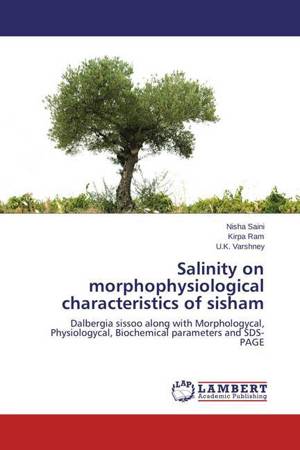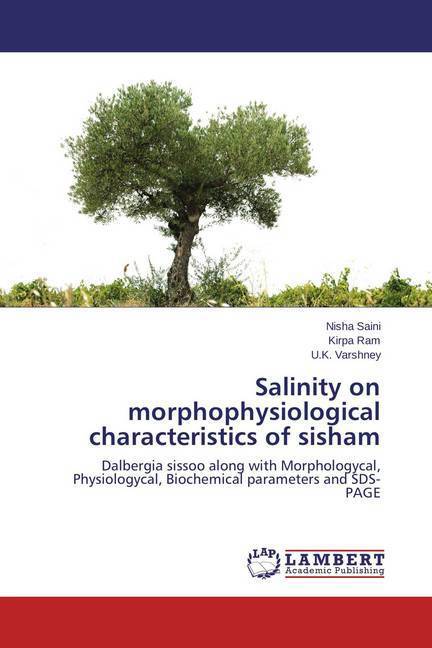
- Afhalen na 1 uur in een winkel met voorraad
- Gratis thuislevering in België vanaf € 30
- Ruim aanbod met 7 miljoen producten
- Afhalen na 1 uur in een winkel met voorraad
- Gratis thuislevering in België vanaf € 30
- Ruim aanbod met 7 miljoen producten
Zoeken
Salinity on morphophysiological characteristics of sisham
Dalbergia sissoo along with Morphologycal, Physiologycal, Biochemical parameters and SDS-PAGE
Nisha Saini, Kirpa Ram, U. K. Varshney
Paperback | Engels
€ 39,95
+ 79 punten
Omschrijving
Dalbergia sissoo, known commonly as Indian Rosewood, is an evergreen rosewood tree, also known as sisu, sheesham, tahli, Tali and also Irugudujava. It is one of the most important timber species of India. It is widely distributed in many parts of India up to 900m in the sub- Himalayan tract and occasionally ascending to 1500m. It grows abundantly and forms a forest, either pure or mixed with other species on the new alluvium formed of deposits of sand, boulders etc., in the riverbeds of these regions. Sissoo trees from different localities have varied characteristics including growth, form, colour, grain, working and strength properties. Inhibition of plant growth and development under salt conditions is, at least in part, due to both osmotic and ionic components, which may cause plant water deficit, unbalance of nutrients, and ion toxicity. In the present study relative tolerance of Dalbergia sissoo Roxb. has been compared on different levels of salinity at early stages of their growth.
Specificaties
Betrokkenen
- Auteur(s):
- Uitgeverij:
Inhoud
- Aantal bladzijden:
- 76
- Taal:
- Engels
Eigenschappen
- Productcode (EAN):
- 9783659746123
- Verschijningsdatum:
- 23/06/2015
- Uitvoering:
- Paperback
- Afmetingen:
- 150 mm x 220 mm
- Gewicht:
- 122 g

Alleen bij Standaard Boekhandel
+ 79 punten op je klantenkaart van Standaard Boekhandel
Beoordelingen
We publiceren alleen reviews die voldoen aan de voorwaarden voor reviews. Bekijk onze voorwaarden voor reviews.








